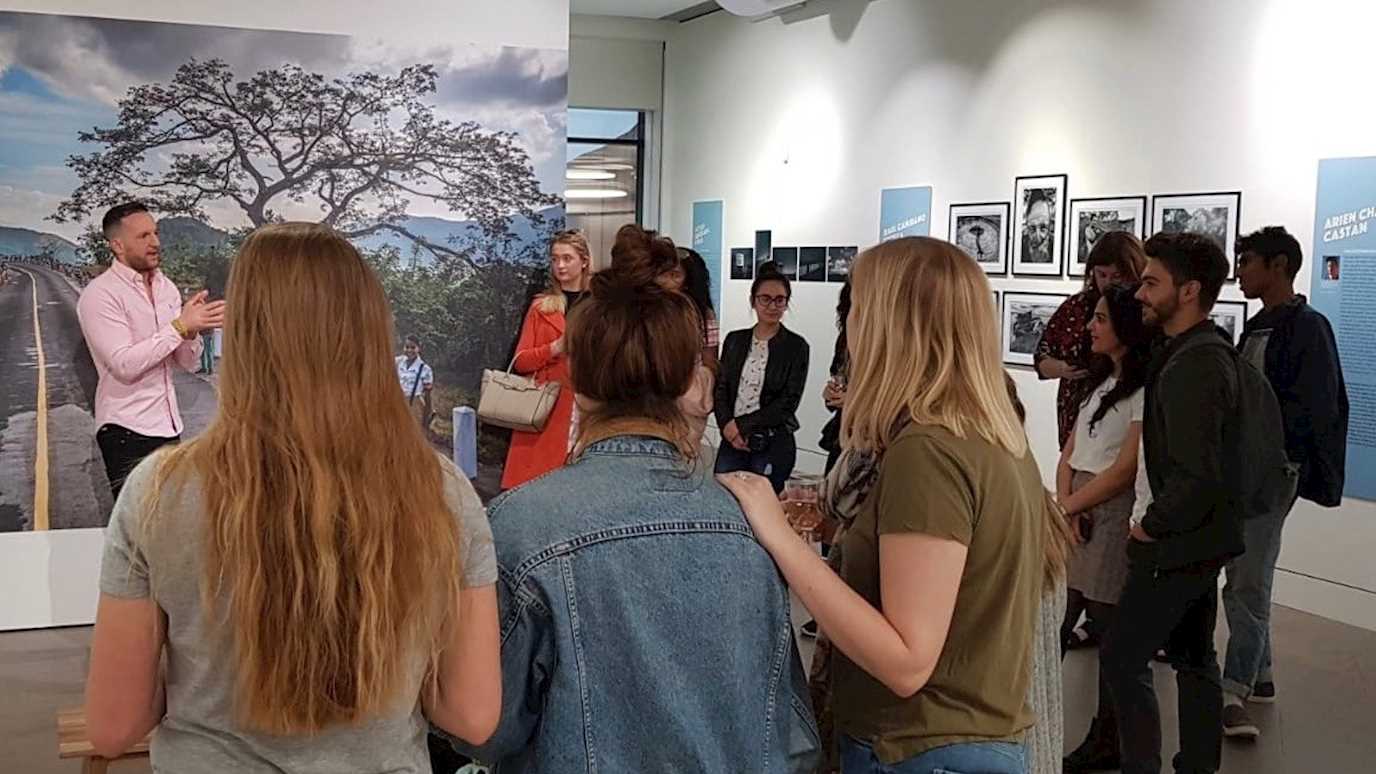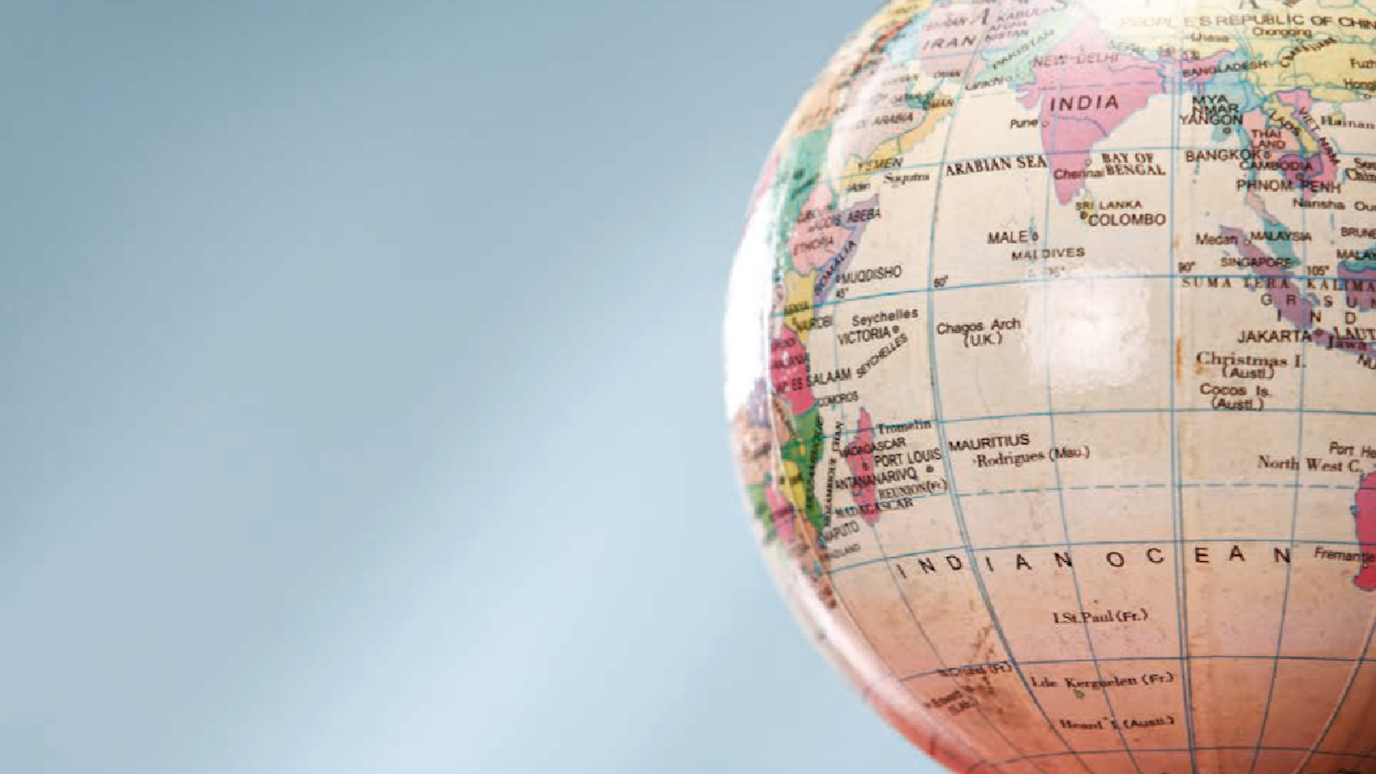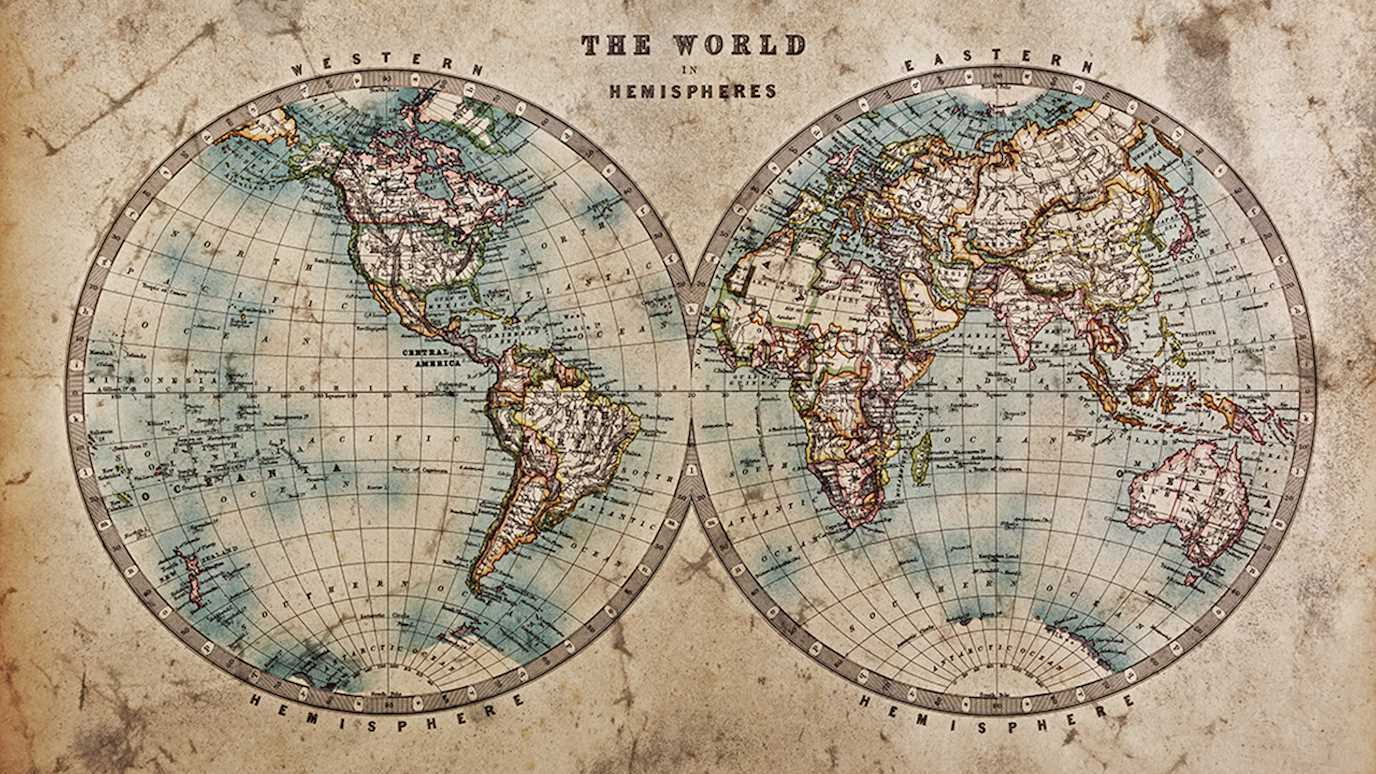We are very much looking forward to welcoming you to the Department of Languages, Literatures and Cultures at Royal Holloway very soon. This page is designed to whet your appetite for your studies with us, and to give you some ideas about how to prepare in a fun and inspiring way.
Below you will find a range of different suggestions for reading, viewing and thinking. We've pointed you towards resources and activities that will help get you thinking before you start with us. None if it is obligatory and nor is it a formal part of your studies - it's simply a way to get you thinking like one of our students and to offer you some inspiration during the summer!
Our degree programmes:
Modern Languages - French, German, Italian, Spanish

Language-Learning
- Whatever your level, Language-learning will be at the heart of your Modern Languages studies with us. For some of you this will be at advanced level, for others beginners'. Why learn languages? This British Academy report offers some ideas. What challenges do you anticipate? What opportunities? How can you start to prepare?
- The Guardian has a great collection of stories on the The Case for Language Learning, relating to the challenges, pleasures and practicalities of learning languages. Have a look at the stories to get some inspiration. Have you ever thought of using your other interests and passions - such as food or music - to help with your languages?
Nationhood and imagined borders
- Many of your courses will ask you reflect on complex questions of 'national' identities, historically and in the present day, and how they relate to personal, regional, political and other affiliations.
- Watch this TED talk by writer Taiye Selasi: ‘Don’t ask where I’m from, ask where I’m local’. Think about what a 'nation' means to you and how we navigate multiple national and local identities in contemporary society.
- Watch the TED talk by writer Chimamanda Ngozi Adichie: ‘The danger of a single story’. How relevant are the issues raised by Adichie to the way we approach the study of cultures other than the ones we are more familiar with? Can you think of literary or other media representations that challenge the lens of the ‘Single Story’?
French
Develop your French listening and comprehension skills with these French-language podcasts:
- 'Poire et Cahuètes' from Slate.Fr. In this latest episode of the current affairs podcast, the focus is on 'white privilege' and racism in contemporary France. Check out the further reading/viewing recommendations on this vital topic.
- 'Les Pieds sur Terre' is a long running series of 30 min documentaries from France Culture. It usually has no comment and features a range of accents and sociolects - it is just people talking about some kind of experience. Listen carefully and you will learn a lot of vocabulary, idioms, and encounter a variety of pronunciations. It also teaches you about French society, the words people put on their experiences, and how they think about life in general. In this episode you will meet various people who visit tombs in the famous Père Lachaise cemetery in Paris.
German
- Film tip: Among the key themes you will encounter in your German Studies courses are history, memory and guilt. These have loomed large in German society and culture since the Second World War. An excellent, gripping German film that deals with them is Lore, directed by Cate Shortland (2012). The film tells the tale of a group of young siblings, led by the oldest sister Lore, who must fend for themselves in the ruins of Germany at the end of the Second World War. They undertake a perilous journey across the country and have to face up to their own family's and their personal guilt in the process. The film is available to rent from Amazon Prime or YouTube.
- Why not prepare by watching this short study guide to Lore made by our colleague from German Dr Jon Hughes
- Podcast tip: If you're interested in true crime, but want more than just sensationalism, then try the excellent Zeit Verbrechen podcast from Die Zeit newspaper. In this episode we learn about the concept of 'transgenerational trauma', and a young woman who has investigated a crime that has haunted her family for many decades.
Spanish
- Dip into this series of podcasts from the University of Oxford to discover the historical background of Spain.
- To learn more about justice for the victims of Francoism in contemporary Spain, watch this documentary, 'The Silence of Others', which is currently streaming on BBC4 via the iPlayer
- One of the most impressive recent films dealing with Spanish history was Gullermo del Toro's Pan's Labyrinth. Watch the director discuss his film in this film.
- Or listen to this fascinating conversation between Maria Delgado and the famous Spanish film director Pedro Almodóvar about his film Volver.
Italian
- What do you know (or think you know) about Italian art, design and fashion? Watch this short film by Royal Holloway's Professor Giuliana Pieri about ‘The Making of Modern Italy: Art and Design in the Early 1960s’, an exhibition she curated for the Estorick Gallery, London in 2019.
- Read this interview to get a rare insight into the enigmatic author of some of the most successful Italian novels ever written - Elena Ferrante, author of the L'amica geniale / Neopolitan Novels.
- Why not prepare for your Italian studies by watching one of the most important Italian films of the 20th century: Ladri di biciclette / Bicycle Thieves, directed Vittorio de Sica (1948)? You will have the chance to study this film, and Italian Neo-Realism. To whet your appetite here's a video review by the popular film critic Mark Kermode:
Comparative Literature and Culture
We’re delighted that you have chosen Comparative Literature and Culture (CLC), a unique degree which enables you to expand your literary and cultural horizons, ranging across times, places, genres, and media.
We’ve come up with some suggestions to get you thinking about how you can engage comparatively and critically whenever you read, whilst developing your global cultural awareness (and exploring film and art too, if you choose). Over the summer, you might want to start thinking about the contexts which influence the ways people tell stories across the world; about how texts reflect similarities, differences and changes in passions, power structures, ideas and beliefs; and about how texts reflect and circulate ideas and perspectives that open our minds as we travel transnationally.
Dip into the suggestions for reading and viewing below, engage with the critical and cultural debates central to your studies, and sharpen your comparative and critical skills.
Get a taste of a world of literature
In your degree you will read comparatively across the world, from Ancient Greek epic to twenty-first-century texts. Everything is available in English, so there’s a whole world of books in English and in translation to discover.
- Now is a really good time to discover books by Black authors in English translation in this selection from award-winning translator (and Comparative Literary Studies PhD) Jenny Croft.
- And here are some more recommendations of different kinds of books – contemporary and classic - in translation from across the world:
- Must-read books by women in translation
- Classics in translation
- European Women Writers in translation
- Ann Morgan has some brilliant tips for how to start the exciting journey of reading out of your comfort zone (we’ll be guiding you when you arrive at Royal Holloway of course).
- The Nigerian novelist Chimamanda Ngozi Adichie’s TED talk, ‘The Danger of a Single Story’ provides some great inspiration for thinking about why it is vital to read and think broadly and diversely. As you listen to her think about how we use stories to construct narratives of identity (gender, sexual, racial, class, family). How relevant are the issues raised by Adichie to the way we approach the study of different cultures? Can you think of literary or other media representations that challenge the lens of the ‘Single Story’?
Your chance to get thinking about visual arts
- Have you ever thought about sculpture? It’s a medium which can get you thinking about why artists use different materials. Look at the techniques examined and sculptures displayed here. Does knowing about the creative process help our understanding of art works? Can you draw a clear line between art and craft? What is the relationship between art and space?
- Explore the role of socially-engaged art and photography by looking at the work of American photographers from the 1930s exhibited here. How do these photographs tell stories about the United States at a critical moment in its history? What different techniques are employed by the photographers and how do they engage with the different subjects represented? Can you think of ways in which documentary photographs are still used today as potent catalysts for social change?
- If you want to start thinking comparatively and critically about film, try analyzing the audiovisual techniques employed in the introduction to the 1995 French film La Haine (Hate).
- Why do you think the film starts so abruptly with documentary footage? Can you explain the extreme contrast with the highly stylised voice-over scene about a man falling to his death? Why use Bob Marley's 'Burnin' and Lootin'' in a film set in the Paris region? What do you think this sequence (all in black and white like the rest of the film) is suggesting about the relationship between lived reality and art (cinema, music)?
- When you arrive on campus, you can visit our own Picture Gallery on campus and look forward to welcoming you there. As you compare some paintings in this fine Victorian collection, think about how tastes, styles, subjects and artistic media change as the conditions in which art its produced and consumed change. One painting that takes us far from home, Edwin Long’s ‘The Babylonian Marriage Market’.

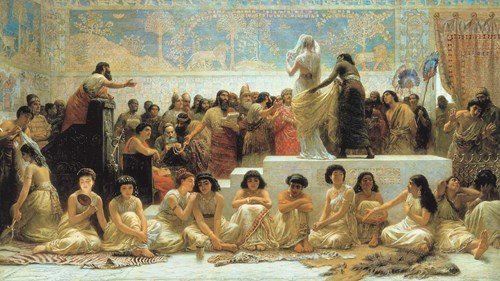
- It was acquired by our founder Thomas Holloway as a contribution to debates about women’s new roles in society. From our contemporary perspective, however, we can look at it and think about how the exotic ‘orientalist’ setting raises a whole range of questions. How does it make us feel about painters and viewers as consumers of women and of other cultures? What does this painting suggest about how the domination of colonised people and of women was normalised and how Victorian Britons legitimised their Empire and their treatment of women? How do images – in galleries or in the media – position women and people from other cultures today, in the global marketplace?
Liberal Arts
As an incoming Liberal Arts student at Royal Holloway you will soon be asked to pick your course modules from a wide range of disciplines. Remember, this flexible degree does not restrict you just to the Arts - you can range from History, Drama and Languages, through Politics, Psychology and Criminology, to the Natural Sciences and Mathematics - and more.
With so much choice at Royal Holloway this is an exciting process, and it might not be sure what to choose. You will receive advice from a Personal Tutor, so don't worry! It might help to familiarise yourself with some of the different departments and disciplines at Royal Holloway, as a first step, and 'meet' some of the staff. Remember to stay flexible until options are published.
- Signing up for Liberal Arts makes you part of an international community of students. The European Liberal Arts initiative gathers resources and includes plenty of student voices. Take a look at their website. What are the characteristics of Liberal Arts? What are you expecting from it? How far might a community of students extend?
- As part of your programme you will learn a language. For some of you this will be at advanced level, for others beginners'. Why learn languages? A British Academy report offers some ideas. What challenges do you anticipate? What opportunities? How can you start to prepare?
- Read this short article by Royal Holloway academic Dr Jon Hughes to get some insight into how learning a foreign language such as German can improve your language skills generally, including in your native language. Do you have any similar experiences?
- Interested in history? Try this very relevant recent BBC History Extra podcast exploring the history of pandemics from an interdisciplinary perspective. Comparative and interdisciplinary thinking is central to a Liberal Arts degree.
- Interested in law, criminology or ethics? Watch this fascinating TED talk by Martha Minow: 'How forgiveness can create a more just legal system'. Do you agree with her argument?
- Interested in the arts and creativity? Read how artist Vaia Paziana reflects on the three digital workshops she ran for students at Royal Holloway in February/March 2019 exploring connections between digital art and handmade craft work, and watch an example of the video art created by the students.

- Liberal Arts programmes in the U.K. encourage students to reflect on civic responsibility. In second or third year at Royal Holloway we offer a credit-bearing volunteering course. One of our student reports on her experience in this video. There are also plenty of possibilities to make a difference, meet people and learn skills from the outset. You can find out more here.
History of Art and Visual Culture
We’re delighted that you have chosen to study History of Art and Visual Cultures, a unique programme which gives you the skills to read, interpret and analyse images and artefacts across cultures, times, genres and media. We’ve come up with some the suggestions so you can start engaging critically and creatively with various aspects of visual culture and the history of art. Dip into the suggestions below and engage with questions you will explore in depth when you join us at Royal Holloway in the autumn.
- During lockdown museums and galleries have been shut but many have increased their digital resources. The Southbank Centre in London gathers literature, art, music, performance and political debates - perfect for a student of the History of Arts and Visual Culture. Listening to podcasts can be a good way not only to broaden your horizons but also to practise listening skills for lectures. Pick something new and make a few notes. What are the key points? Can you summarise it in a paragraph? What would be your own critical review of it?

- We have our own Picture Gallery (including the above painting: Edwin Long's 'Babylonian Marriage Market', 1875) on campus and look forward to welcoming you there. In the meantime you can explore it online. Which painting(s) are you drawn to and why? Do we need extra information to read images? To what extent are they still relevant to today's students? How can they be made accessible? An audio described tour of our Picture Gallery is available.
- Have you ever thought about sculpture? It’s a medium which can get you thinking about why artists use different materials. Look at the techniques examined and sculptures displayed here. Does knowing about the creative process help our understanding of art works? Can you draw a clear line between art and craft? What is the relationship between art and space?
- The question of statues and monuments has been in the news recently. Royal Holloway has a statue of Queen Victoria. What can we learn from it? Is it controversial in any way? How can we use History, Art History, Politics or Sociology to understand this sort of big issue?
- Explore the role of socially-engaged art and photography by looking at the work of American photographers from the 1930s exhibited here. How do these photographs tell stories about the United States at a critical moment in its history? What different techniques are employed by the photographers and how do they engage with the different subjects represented? Can you think of ways in which documentary photographs are still used today as potent catalysts for social change?
- If you want to start thinking comparatively and critically about film, try analyzing the audiovisual techniques employed in the introduction to the 1995 French film La Haine (Hate).
- Why do you think the film starts so abruptly with documentary footage? Can you explain the extreme contrast with the highly stylised voice-over scene about a man falling to his death? Why use Bob Marley's 'Burnin' and Lootin'' in a film set in the Paris region? What do you think this sequence (all in black and white like the rest of the film) is suggesting about the relationship between lived reality and art (cinema, music)?
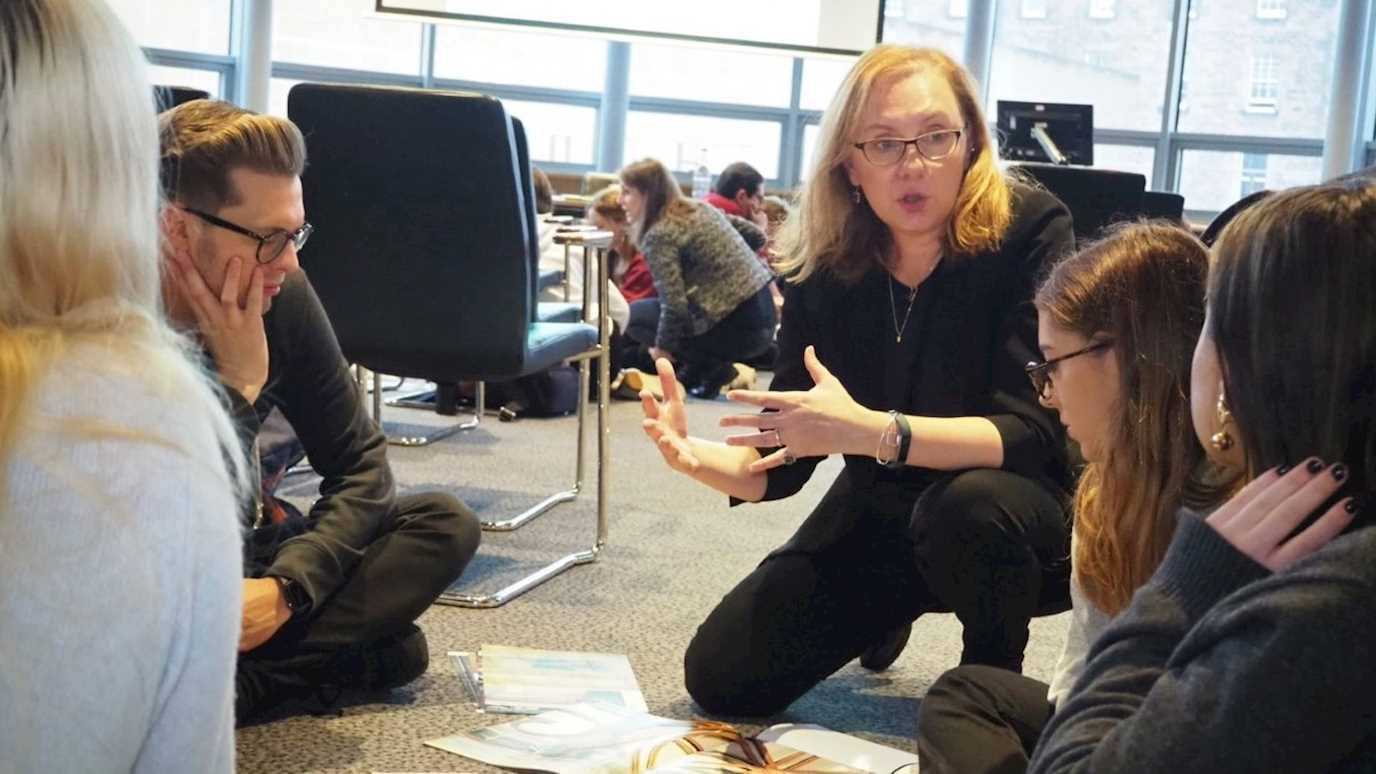
Professor Giuliana Pieri with students from the Department of Languages, Literatures and Cultures










